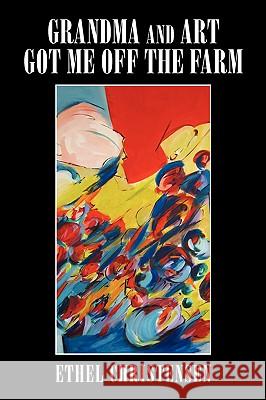Grandma and Art got me off the Farm » książka
Grandma and Art got me off the Farm
ISBN-13: 9781425701727 / Angielski / Twarda / 2007 / 280 str.
Abandoned by her father and rejected by her mother, 4 year-old Jennie is taken without explanation from her kindergarten class and driven through the night to live with her grandparents. They live on a farm where gophers pop out of the ground, turkey gobblers give chase, the bathroom is in a little house near the woods, and which is austere and culturally limited. Almost from the beginning she tries to run away back to live with her mother in Minneapolis. But her grandparents, although undemonstrative, steadfastly support her. Grandpa helps her with her homework at night sitting around the kitchen table lit by a kerosene lamp, she sits on his lap, while riding the binder, and curls up with him on the sofa at nap time. She helps her Grandmother with the chickens, picking eggs and feeding the pigs. But conflicts arise. Especially with her aunt, Hilda who is spiteful and humiliating. Jennie wants to run away and find her father in Canada but all her attempts fail. As far back as in kindergarten, Jennie liked to draw. So in first grade when she was asked to draw the picture placed on the blackboard in front of the class, she worked hard to copy the exact likeness. The picture was The Last Supper. After that, she became known as the class artist. Hilda felt Jennie was wasting her time drawing and discouraged her. Reading, another of Jennie's interests, was also considered wasteful. All through high school Jennie continued to be the school artist. During this time she became attached to Frank, a future farmer with a kind, uncomplicated view of life. He loved her but knew her dream was to leave the farm and go to study art. After graduating from high school Jennie is offered a job in Washington, D. C. Her grandmother slips her thirty dollars and urges her to leave at once, before Aunt Hilda can interfere. Her new life in the city is a shock and a revelation. Jennie discovers art galleries, takes her first real art lesson using pastels, and begins to acquire a new set of goals and values. Two years later, she returns to Minneapolis and enrolls at the University of Minnesota in art. Life is a struggle as she has to work to support herself and pay for her education. While working at one of the her jobs, she meets Jim, a young psychology student who is using the G.I. Bill to attend university. Soon they marry, unknown to either Jennies' mother or her aunt Hilda. Jim is very supportive of Jennie's interest in art. Between leaving the farm and starting university a series of tragedies occurred. Her grandparents died-first her grandfather, then her grandmother. Earlier a favorite uncle shot himself. Another uncle died under questionable circumstances and her mother becomes committed to a mental hospital while her father remained a mystery in spite of efforts to locate him. After graduating from university, she paints and exhibits her work, exploring new directions of expression. It is not easy to find success. When galleries are either hanging her work upside down or failing to pay her, they disappear from sight. Her first real success comes from entering a painting in an exhibition in New York. Titled Subjective-Objective, the painting and received first prize. From then on Jennie's goal to become an accomplished artist plays an important part in her life. Still, she couldn't forget the farm where her uncle now lives. One day, she decided to go back to the place she'd grown up and had wanted to escape. Seeing the faded wallpaper on the upstairs hall the stippled paint walls, the empty bookcase, Jennie becomes aware she has slowly moved from the austere and culturally limited setting of the farm to a new world, one of painting, art, and intellectual interactions. She'd left the farm and could not return. Back in Toronto, Jennie walked into their











